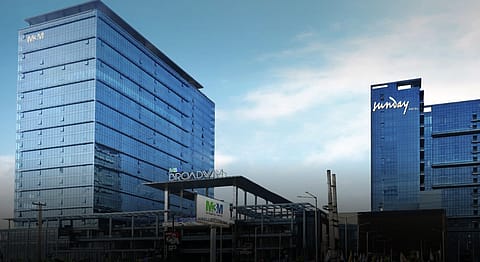SC allows M3M Group to substitute PMLA-attached land with commercial property valued at ₹317 cr
In a landmark decision, the Supreme Court allowed M3M Group to substitute PMLA-attached land with commercial units worth ₹317 crore. The ruling, praised for its progressive approach, aims to ensure procedural fairness without compromising enforcement power.

In a relief to Gurugram-based real estate major M3M Group, the Supreme Court has allowed the developer to substitute land attached under the Prevention of Money Laundering Act (PMLA) with other commercial property, M3M Broadway, of a similar value.
The two-judge Bench comprising Justice Pamidighantam Narasimha and Justice R. Mahadevan, while hearing a special leave petition filed by M3M, held that a property attached under the PMLA may be substituted by an alternate asset of equivalent or higher value, specifically its commercial units within the "M3M Broadway" project located in Village Fazilpur Jharsa, Gurugram, Haryana, which is valued at ₹317 crore. The properties were valued by CSV Techno Solutions LLP.
Senior counsel Abhishek Manu Singhvi appeared on behalf of the M3M Group companies — M3M India and M3M India Infrastructure. The Supreme Court, however, clearly stated that the order is passed "in the facts and circumstances of the case" and will not be "treated as a precedent."
M3M, reacting to the development, said the “ruling marks a decisive shift in enforcement jurisprudence, striking a balance between the state’s interest in securing alleged proceeds of crime and the fundamental right of legitimate enterprises to pursue economic activity.”
M3M had moved the Supreme Court against the Punjab and Haryana High Court order, which had refused to substitute the property provisionally attached by the ED. M3M’s application sought to substitute the provisionally attached land with an alternate parcel of equal or greater value, to enable development activity to proceed, while maintaining compliance with the PMLA’s safeguards.
Legal experts term the ruling as the evolution of the statute’s interpretation. Parimal Tripathi, Senior Advocate and Head of Sutradhar Associates, terms it a “progressive” order, which he says will “positively” influence other ongoing matters of a similar nature. “The substitution mechanism does not dilute enforcement power under PMLA. Rather, it strengthens procedural fairness and reflects a maturing jurisprudence that understands the real-world implications of criminal law on business continuity.”
Rohit Sinha, a leading voice in white-collar litigation, said the judgment repositions the enforcement narrative. “Not all enforcement action must paralyze business. Companies like M3M have demonstrated that it’s possible to offer win-win solutions — upholding the law while enabling economic development.”
Recommended Stories
The substitution was subject to the SC-approved nine conditions, which were imposed by the ED. Zoheb Hossain, counsel for the ED, submitted that the agency agreed to the substitution of property on certain conditions. The petitioner must establish a clear, marketable title and undisputed ownership of the substituted assets, supported by verifiable documents. The assets must be free from all encumbrances, including mortgages, liens, or third-party claims. The petitioner must also provide a notarised undertaking not to sell, transfer, or alienate the substituted property during the proceedings.
Original title documents of the substituted property must also be deposited with the ED or court, with formal acknowledgement. The petitioner must furnish an indemnity bond to cover any loss or legal deficiency arising from the substitution. The condition also states that transactions involving third-party retail buyers or investors for other units in the M3M Broadway project will remain unaffected by the enforcement proceedings. Also, if the adjudicating authority confirms attachment of the alternate assets, the petitioner will hand over possession to the ED.
Additionally, the petitioner must disclose the source of funds used to acquire the substituted assets, with supporting financial records. The condition also says that property substitution will not affect ED’s rights or be seen as acceptance of the legitimacy of the original attached assets, and the petitioner must fully cooperate with the ED or any other authority under PMLA.